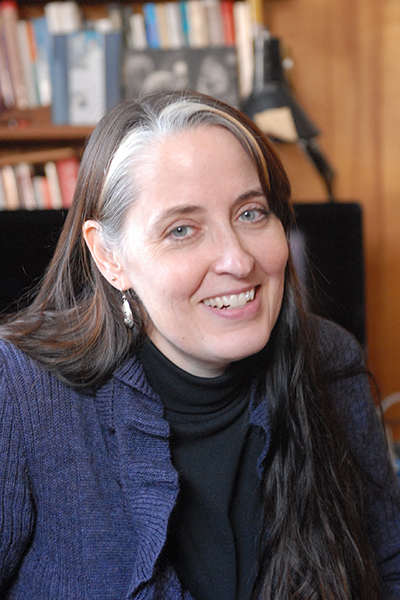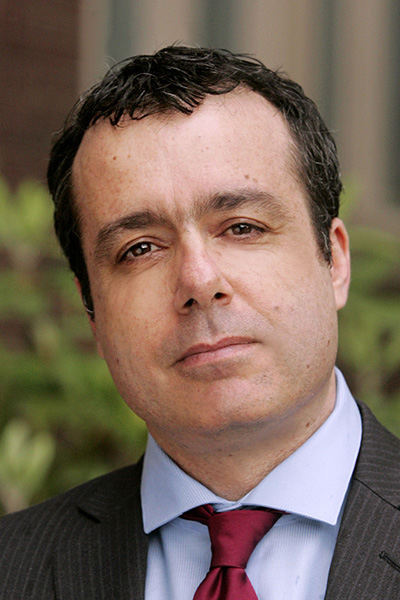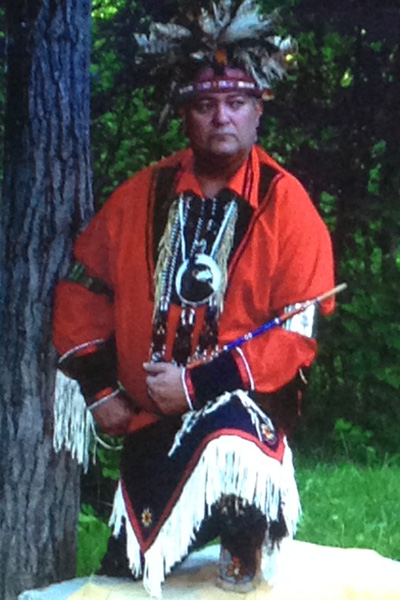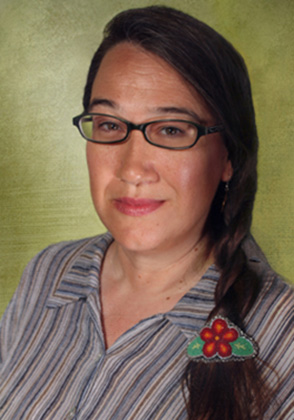College of Arts and Sciences Newsroom
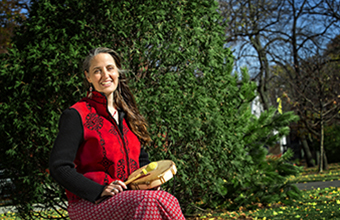
Standing with Standing Rock
The University of Dayton has a longstanding relationship with the Standing Rock Sioux tribe, whose members are among the thousands of people gathered in North Dakota in an attempt to block the controversial Dakota Access Pipeline.
The protests, which have gained media attention in recent months, will be among the topics next week at the Native People of the Americas Colloquium 2016, an annual forum at the University that gives voice to indigenous issues, perspectives and experiences.
The event, Nov. 14-15 in the Kennedy Union ballroom, is free and open to the public. Registration is required for some events.
Native Americans and environmental activists have gathered near the Standing Rock Sioux Reservation to protest the $3.7 billion pipeline, which will carry oil nearly 1,200 miles from North Dakota to Illinois. The pipeline would travel underneath the Missouri River, the primary drinking water source for the Standing Rock Sioux. Tribal leaders also argue that the pipeline cuts across a sacred burial ground. Last month, more than 140 protesters were arrested.
On Tuesday, Linda Black Elk, a Standing Rock Reservation resident and instructor at Sitting Bull College in North Dakota, will discuss the protests with her husband, Luke Black Elk, a storyteller, grassroots activist and traditional spiritualist.
Another session Tuesday will address “ReZpect our Water,” an initiative launched in July by Native American youth as part of the Standing Rock protests, and similar efforts intended to raise awareness about the potential environmental impacts of pipelines.
“This is a profound opportunity for everyone on campus to learn about an issue that is woefully under-covered by the media,” said Tereza Szeghi, associate professor of English. “A lot of students have heard about it but don’t necessarily know the particulars of where things stand or why the threat of a pipeline is such a big deal. I’m hopeful we will have a good turnout.”
Szeghi, who lectures about Native American and Latino literature, co-chairs the event with Tom Morgan, an associate professor of English who lectures about Native American and African-American literature.
She said the Standing Rock protests are a powerful illustration of classroom discussion topics such as land rights, treaty rights and sovereignty that puts those issues in a contemporary, rather than historical context.
The Native Peoples of the Americas Colloquium was established in 2001 by Mary Anne Angel, a retired lecturer in the department of communication who founded Circle of Light, a University inclusion and diversity program. Angel made regular visits to Standing Rock Reservation starting in 1999 and also brought tribal youth and elders from the reservation to campus for various partnership programs.
A large delegation from Standing Rock Reservation, located 1,200 miles from Dayton, attends the University conference annually.
“The big-picture goal of this event is how can we create a space not only to discuss indigenous issues on campus, but to give indigenous people a voice to directly talk to our students,” Morgan said. “I think this offers a great opportunity for both of those objectives.”
The theme of this year’s conference is Indigenous Language Preservation and Cultural Resistance. Keynote speaker Heid Erdrich, author of four collections of poetry, will present poetry, poem-films and food stories from the indigenous peoples of the Upper Midwest. Other sessions will address native language revitalization, the universal language of music and storytelling, and the history of LGBT Native American activism. The event also includes a native blessing ceremony, community drumming and dancing, and a medicinal pillow-making workshop.
In addition, a monthly Native Peoples of the Americas film series continues through Dec. 1 at the Roesch Library on campus.
“We always try to have some kind of integration between traditional academic events and things that are more experiential in nature or showcase a broader range of the culture,” Szeghi said. University students are doing social media and promotional work for the conference, and also facilitate post-film discussions.
For the conference schedule and registration information, please follow this link.
- Dave Larsen, communication coordinator, College of Arts and Sciences

